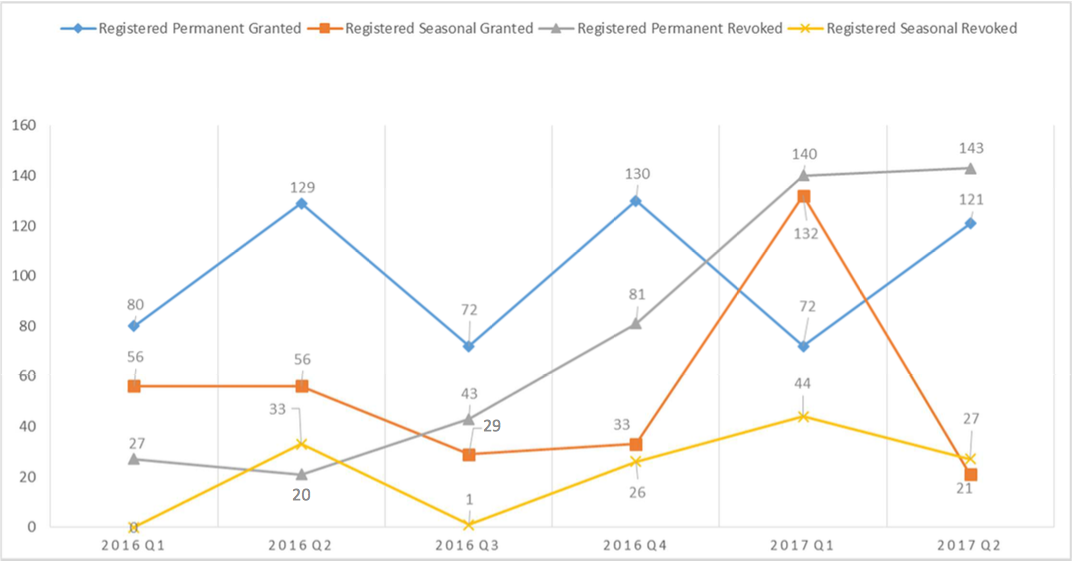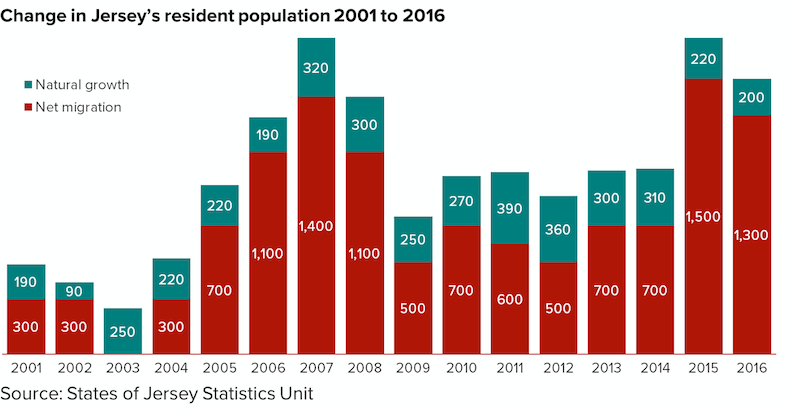

Whilst the Population Office is introducing new measures to crack down on net migration, local businesses say they are struggling to fill permanent vacancies.
Business-owners are hoping that the Population Policy, a draft of which is being finalised, will address what they describe as the bigger issue of Jersey’s recruitment shortage.
The new Population Policy, which is apparently currently being finalised, will operate in combination with the Population Office's latest efforts to revoke permanent registered permissions, grant more seasonal permissions and increase licensing fees.
Vice-President of the Chamber of Commerce and Chair of the Retail & Supply Committee, Mark Cox said that although the principles of this new policy are sound, it’s important that the recruitment needs of local businesses are taken into account.

Pictured: In an effort to encourage workers in the hospitality and agriculture sectors, 161 seasonal permissions have been granted in the last six months.
Mr Cox told Express: “Overall, when you look at the number of vacancies around, there is an issue not just in hospitality and agriculture, but everywhere. Finance and retail are struggling to recruit. Whilst seasonal licences are definitely beneficial for certain areas, like hospitality and agriculture, they are struggling to find people to fill those vacancies.
“There is a bigger issue here than just seasonality… Whilst it's commendable that the States have a policy of encouraging people to employ locals, as many businesses here would try and do where they can, being able to find that resource to fill the current level of vacancies is a real issue.”
The Population Office is also looking to introduce registration cards with photographic identification.
These controls are part of an effort to crack down on net inward migration, which, according to the Statistics Unit, brought 1,300 people to Jersey in 2016.

Pictured: Statistics Unit report on Jersey's resident population 2001-2016.
When asked about the possibility of new migrants having to apply for work permits or face criminal record checks, Mr Cox said that he “recognise[s] that it is important to have some controls in place”, but he expressed concern about the “additional cost to businesses” posed by the increase in licencing fees. He added: “We do need people to fulfil the vacancies that are around. It’s not just affecting the agricultural and tourism industries; it is across the board.”
These new measures, which were announced in January, have seen a sharp rise in the number of permissions revoked over the last year.
In the last six months, the Population Office has revoked 283 permanent registered permissions, which is 236 more than were revoked in the first six months of 2016.
Comments
Comments on this story express the views of the commentator only, not Bailiwick Publishing. We are unable to guarantee the accuracy of any of those comments.